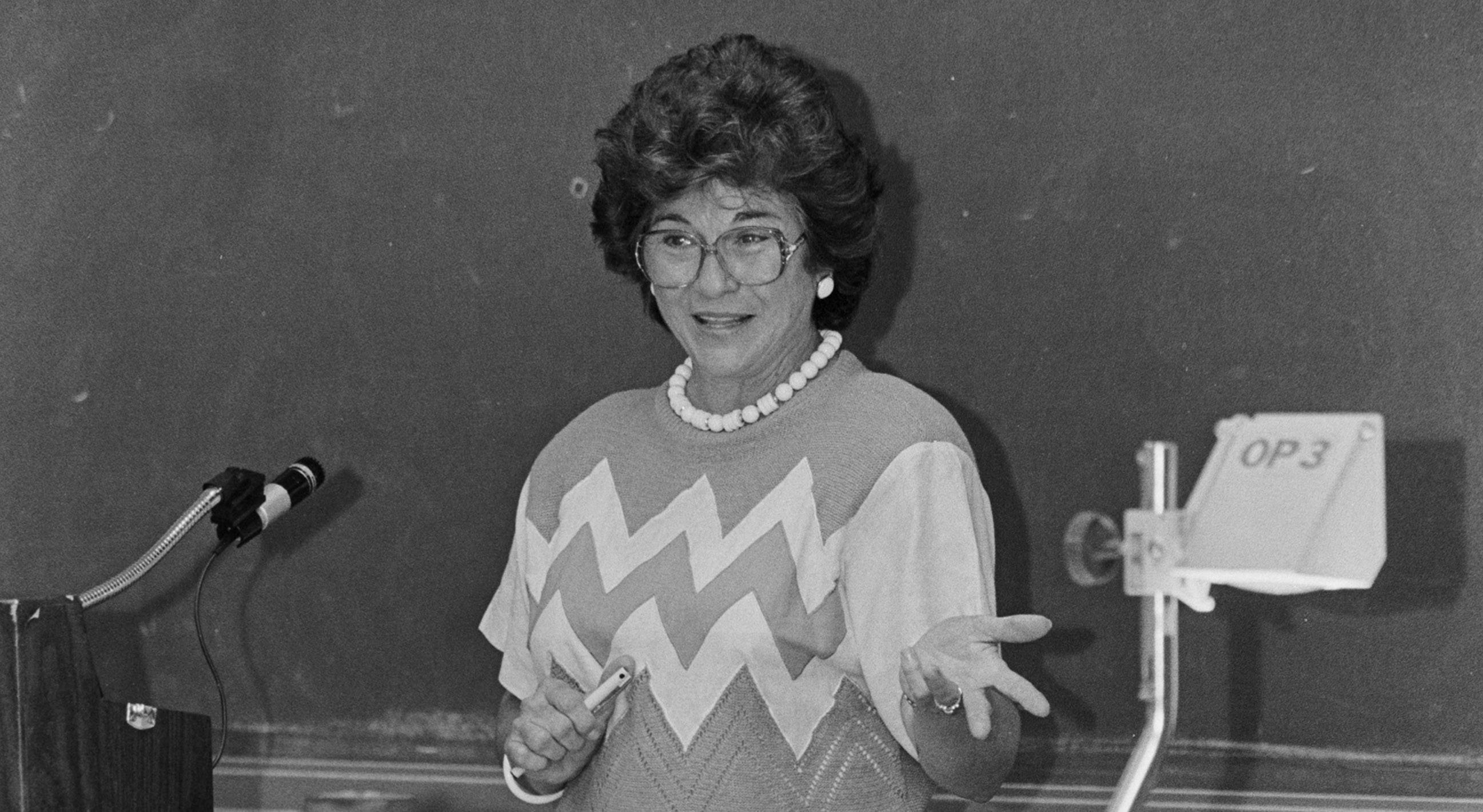María de Jesús Páez de Ruiz
The first minority woman to make full professor at Texas State inspired students with her courage and resilience
By Robyn Ross

September 1, 1991, marked an important achievement for Dr. María de Jesús Páez de Ruiz: After 13 years of teaching Spanish language and literature at Texas State University, she was promoted to full professor. But the date was also a significant milestone for the institution: Páez de Ruiz was the first minority woman to make full professor at what was then called Southwest Texas State University.
Along the way, Ruiz overcame numerous challenges — fleeing her native Cuba, re-earning her educational credentials, and starting life in a new country. Ruiz, who celebrated her 93rd birthday in February and now lives in Oklahoma, has inspired countless students through her example as an empowering trailblazer.
“I know I opened the door for the people who came behind me,” she says.
Ruiz and her husband, Ignacio Manuel Ruiz Díaz, were teaching at Catholic schools in 1959 when Fidel Castro seized power in Cuba. Castro targeted religious institutions, taking over or closing parochial schools. Worried about the future for their two young children, the family left the country in 1962 and ultimately landed in Puerto Rico.
Since the Cuban government kept all official transcripts, Ruiz earned a second bachelor’s degree in education and began a master’s degree in Hispanic Studies, which she completed at Louisiana State University. Ruiz also earned a doctorate at LSU.
Ruiz moved to SWT in 1978 to teach Spanish literature, grammar, and advanced composition, and to supervise student teachers who planned to teach Spanish. When she discovered that many of her Hispanic students did not speak Spanish, she helped create a program to teach Spanish to students who had a familial or cultural connection to the language. She also established a chapter of Phi Sigma Iota, the international honor society for foreign languages.
“I managed to help the students have pride about their heritage,” Ruiz remembers, adding that times have changed: “Now you see Spanish everywhere.”
Ruiz’s dedication to her language and heritage made an impact on Texas State, says Dr. Gigi Secuban, senior advisor to TXST President Kelly Damphousse. Today, Hispanics make up more than 40% of the student body, and TXST is recognized as a Hispanic-Serving Institution.
“Without her sacrifice, as well as that of others who came before, we would not be able to celebrate the accomplishments and achievements of our ever-growing Hispanic faculty, staff, and student population,” Secuban says.
Ruiz retired in 1997, and after she and her husband spent a year in Puerto Rico to care for her ailing father, they moved to Norman, Oklahoma, to be close to family. As professor emeritus of TXST, she continued teaching for another two decades at the University of Oklahoma.
Over the years, former students have reached out to thank her. One of them, Maria Villarreal (B.A., ’94), arrived at TXST in 1989 as a first-generation college student. Villarreal found a supportive mentor in Ruiz. “Her life story really inspired me to continue and finish my degree and become a teacher,” Villarreal remembers.
Villarreal graduated and returned to her hometown of Harlingen, where she has taught high school Spanish for 30 years. Every day, Villarreal says, she tries to manage her classroom and motivate her students the way Ruiz did.
Ruiz says that hearing about the impact she made on students like Villarreal is a great reward. “I received several recognitions in my life,” she says, “but these were, for me, the most important.” ★